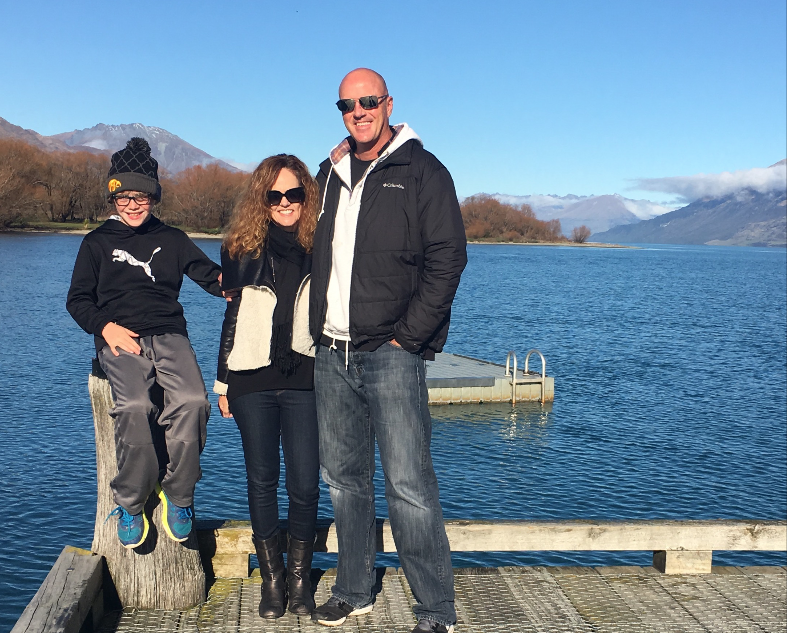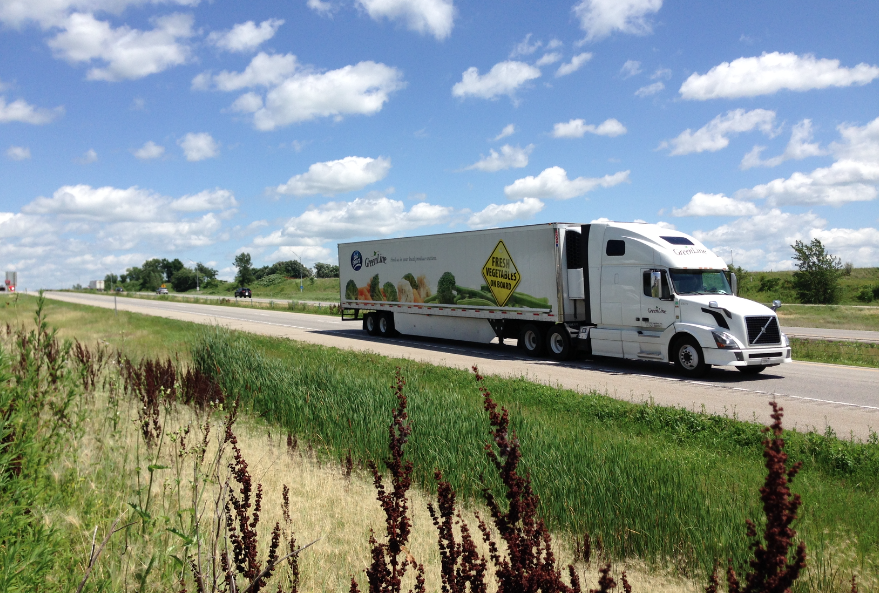Meet the State Exec: William D. Rosener
BY AsphaltPro Staff

He brings a political science degree that he achieved in 1989 from the University of Iowa to his role as executive director.
State Association:
Asphalt Paving Association of Iowa (APAI), Ames, Iowa
How long have you been in the asphalt industry?
31 years
How long have you been the executive vice president of APAI?
8 years
In what year was APAI formed?
1955
How many producer and/or contractor members are in your state association?
23 (100%)
What are the top two or three ways you have increased membership in the association?
We have a strong and vital association that provides value to its contractor, supplier and associate members. We visit and listen to the needs of our contractors, and develop programs and strategies to satisfy those needs. In addition, we try to provide our suppliers and associate members with opportunities to develop relationships with the contractor members.
What is your favorite method for recruiting new asphalt professionals to the industry in general?
The APAI raises over $35,000 per year to go toward scholarships for students in civil engineering, construction management and vocational training programs. The APAI also provides opportunities for these same students to participate in internships with APAI contractor and supplier members for the summer. Finally, the APAI is in the process of creating a young leaders group to encourage greater participation in association activities by younger professionals in the asphalt industry.
In what month do you hold your annual meeting?
December
Do you have a trade show/expo in addition to your annual meeting?
The APAI annual convention in December has over 200 attendees and includes our Scholarship Auction that raises nearly $30,000. The Greater Iowa Asphalt Conference and Equipment Expo (GIAC) is held each March with over 600 attendees. We have two golf outings—Eastern and Western Iowa (270 attendees) where raffle tickets and mulligans raise over $6,000 for APAI scholarships. The APAI summer meeting has about 70 attendees.
Do you have a staff that assists in preparing the annual meeting?
We have a Convention Committee that is comprised of the chairmen of all the APAI committees. The APAI staff puts the program together and makes the event successful.
Does your office staff hold educational seminars or webinars for members separate from the annual meetings throughout the year?
The APAI has an amazing staff consisting of our office manager, Minnie Coree; two retired county engineers working as the APAI field engineers, Larry Mattusch and Royce Fichtner; and retired city of Des Moines Engineer Darwin Larson, the APAI municipal field engineer.
In addition to the number of events listed above, the APAI staff delivers six APAI Road Shows (one in each district) designed to educate the local engineers about the newest innovations in asphalt and rehabilitation techniques. At these events, we encourage local engineers and APAI contractors to discuss local projects. This gives the agency and contractor the opportunity to teach their fellow engineers and contractors about the lessons they learned building their projects. It is always the best part of the Road Shows.
About how many member asphalt projects do you visit per year/paving season?
12+
About how many member asphalt plant tours do you assist/are you a part of per year?
1
About how many APAI / APAI member asphalt open house events do you attend per year?
4 to 5
About how many state agency or DOT meetings do you attend per year?
12
On a scale of 1 to 5 (1 being none at all; 5 being very much), how much of a threat to your members’ marketshare/livelihood is the concrete industry in your state?
5
Could you share an example/anecdote of a time when the concrete industry encroached on the asphalt marketplace in your state?
Iowa is the epicenter of the concrete industry. We are home to two Portland cement plants, Iowa State University and the Concrete Paving Tech Center. When I took over this job in 2008, the price of asphalt cement had risen to over $600+ a liquid ton and the price of Portland cement had fallen to five-year lows. The Iowa Concrete Paving Association made an aggressive move to take market share of the local asphalt road rehabilitation market by promoting thin PCC overlays. Iowa’s asphalt industry had long sold being less expensive than PCC, and we had to redefine ourselves and sell to asphalt’s strengths: fast to construct, 100 percent recyclable, easy to rehabilitate and being the smoothest, quietest pavement. We were successful on two fronts: first, the thin PCC overlays did not perform, most needed rehabilitation in less than 10 years and second, when the raw material market flip-flopped this year, we were able to add price to our list of strengths.
On a scale of 1 to 5 (1 being none at all; 5 being very much), how much difficulty are your members having in finding qualified workers for their asphalt paving or production crews?
4
Could you give an example of a way APAI assists members with workforce development?
The promotion of our industry through scholarships and internship is most important. I also teach or present at all of the major universities once a year. I stress that our industry is unlike any other I have ever been around; If you are willing to work hard and put in the effort, there is literally no limit to what you can achieve in this industry. Look at me, I went from being a flagger to the executive vice president of the APAI.
On a scale of 1 to 5 (1 being none at all; 5 being very much), how involved are your state elected officials in transportation issues such as funding and infrastructure improvements?
4
On a scale of 1 to 5 (1 being none at all; 5 being very much), how involved are your asphalt members in transportation issues such as funding and infrastructure improvements?
4
Could you share an example of a time when your state APA hosted elected officials to educate them on the need for highway funding, etc.?
Iowa just passed a 10 cent gas tax increase in 2015. This was a 25-year effort by all of Iowa’s construction industries and the city, county and state transportation officials. The impetus eventually came down to selling this increase as an economic development tool for Iowans. I am flabbergasted that infrastructure funding is ever a partisan issue. As I see it, the safety of the driving public and promotion of commerce are inherent functions of government.

Iowa’s longest-lasting pavements are full-depth asphalt. In fact, three sections of full-depth asphalt on I-80 that were constructed between 1962 and 1964 are still performing 54 years later. Photo courtesy Bill Rosener of APAI.
Get to Know Bill Rosener
Why (or how) did you join the asphalt industry?
I started working asphalt construction following my senior year of high school. My father worked for Henningsen Construction of Atlantic, Iowa, for nearly 40 years as the comptroller and I came home one night grumbling about some dirty construction workers that had messed up my mop job at the local grocery store. The next week I found myself holding a flag on Hwy 83. I have never looked back. I worked my way through college as a flagger, stringliner, raker and paver operator. I eventually went to work as an estimator and project manager for the LL Pelling Co. Inc. of North Liberty, Iowa, for 12 years prior to taking the job at the APAI. The different roles that I have had in this industry have developed my devotion to the people that work in our industry. They truly are the very best in the nation.
What do you see as the most important part of your job as an executive director of a SAPA?
Get more tons. That is the simple answer. The execution is much more complex.
What is the most challenging part of your job?
The most challenging aspect of my job is changing Iowa’s engineers’ perception that concrete is better than asphalt. We have been fighting this misconception for 50 years in Iowa. The truth is that Iowa’s longest-lasting pavements are full-depth asphalt. There are three sections of full-depth asphalt on I-80 that were constructed between 1962-1964 that still are performing 54 years later. They may last another 50 years, or more. All the PCC that was constructed between the Mississippi and Missouri Rivers on I-80 during the same time period, has been removed and replaced. Asphalt is the most sustainable pavement and the best value to America’s taxpayers.
What do you find most enjoyable about your job as an executive director of a SAPA?
First, I love my job. I am extremely passionate about Iowa’s asphalt industry and working for the APAI gives me a great platform to promote the best asphalt paving contractors in the nation.
Second, the staff that we have at the APAI is committed to building relationships with our contractors, engineers and the agencies we both serve. The trust developed through these relationships is what allows Iowa’s asphalt industry, and our partners in city, county and state agencies, to build the highest quality roadways in the nation.
Finally, there is a commitment to quality throughout Iowa’s asphalt industry. It is the people that make our industry great. Iowa has the best asphalt paving contractors in the nation.
What has been the most rewarding experience for you during your time as the executive director?
There were two experiences in the past year that stand out for me as defining moments in my brief career. First, 2015 was the 60th anniversary of the APAI and we did many things to celebrate the year including making a video to commemorate the event. During the course of making this video, I was able to sit down with six icons in our industry and interview them about what Iowa’s asphalt industry and the APAI meant to them. The results were powerful. It all came down to the people. The people are what make Iowa’s asphalt industry great. You can see the video at https://www.youtube.com/watch?v=5a3J1AtCIHg.
The second moment came this year at the National Asphalt Pavement Association annual meeting in Palm Springs, California. I was fortunate enough to be elected chairman of the State Asphalt Pavement Associations (SAPAs). This was a wonderful honor to be selected by my peers that I truly admire. At the NAPA awards ceremony, three of the four finalists, including the winner, of the Sheldon G Hayes Award, were Iowa contractors. I think most people would be surprised to find out that Iowa contractors have won this award four times in the past 18 years and have been finalists another nine times. This was a very proud day for me personally and professionally.
